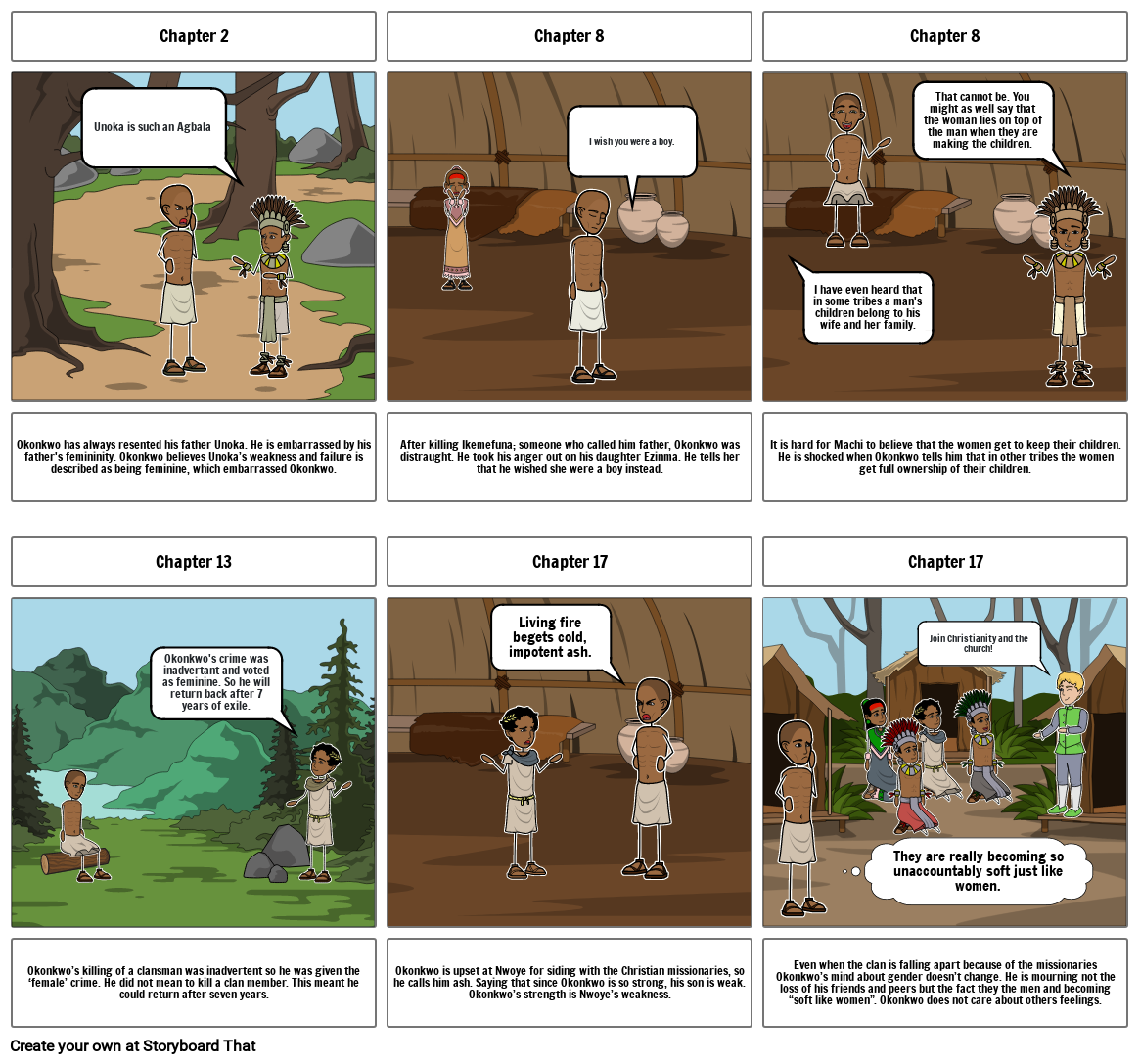Masculinity throughout "Things Fall Apart" By Chinua Achebe.

Öykü Açıklama
StoryBoard by Ashley Farman! 😊
Öykü Penceresi Metni
- Chapter 2
- Unoka is such an Agbala
- Chapter 8
- I wish you were a boy.
- Chapter 8
- I have even heard that in some tribes a man's children belong to his wife and her family.
- That cannot be. You might as well say that the woman lies on top of the man when they are making the children.
- Okonkwo has always resented his father Unoka. He is embarrassed by his father's femininity. Okonkwo believes Unoka’s weakness and failure is described as being feminine, which embarrassed Okonkwo.
- Chapter 13
- Okonkwo's crime was inadvertant and voted as feminine. So he will return back after 7 years of exile.
- After killing Ikemefuna; someone who called him father, Okonkwo was distraught. He took his anger out on his daughter Ezinma. He tells her that he wished she were a boy instead.
- Chapter 17
- Living fire begets cold, impotent ash.
- It is hard for Machi to believe that the women get to keep their children. He is shocked when Okonkwo tells him that in other tribes the women get full ownership of their children.
- Chapter 17
- Join Christianity and the church!
- Okonkwo’s killing of a clansman was inadvertent so he was given the ‘female’ crime. He did not mean to kill a clan member. This meant he could return after seven years.
- Okonkwo is upset at Nwoye for siding with the Christian missionaries, so he calls him ash. Saying that since Okonkwo is so strong, his son is weak. Okonkwo’s strength is Nwoye’s weakness.
- Even when the clan is falling apart because of the missionaries Okonkwo’s mind about gender doesn’t change. He is mourning not the loss of his friends and peers but the fact they the men and becoming “soft like women”. Okonkwo does not care about others feelings.
- They are really becoming so unaccountably soft just like women.
30 Milyondan Fazla Storyboard Oluşturuldu

